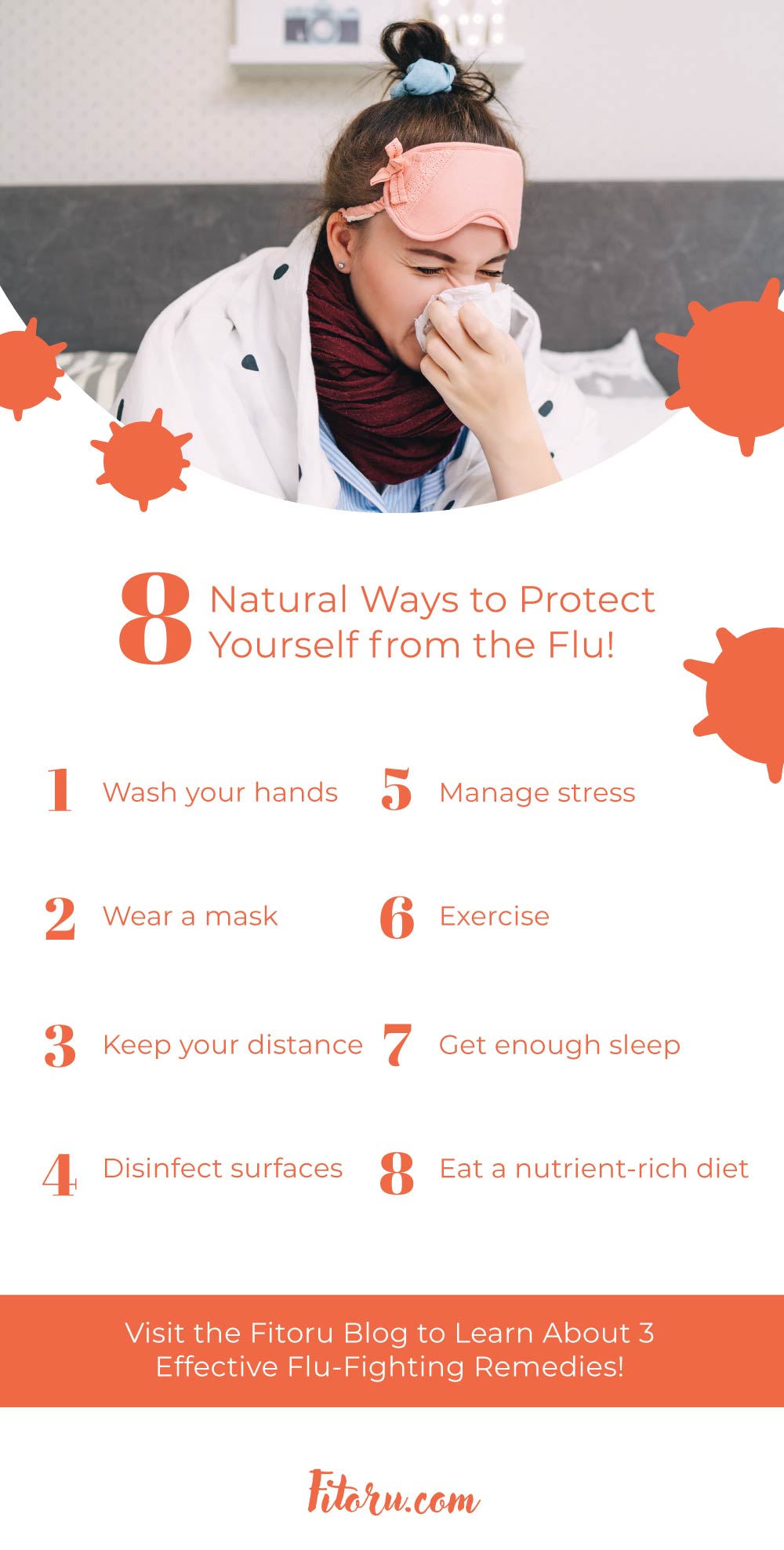Mon - Fri 9.00 - 17.00
Call us +1 (888) 825-9321

In the United States, the peak season for the flu is late November through the end of March. According to the Centers for Disease Control and Prevention (CDC), many parts of the country are currently experiencing “high” influenza activity, and multiple pediatric deaths from the flu have been reported.
Influenza is a highly contagious respiratory illness caused by influenza viruses. These viruses infect the throat and the nose, and sometimes the lungs. Some people will experience mild to moderate influenza symptoms. For others, influenza can be severe and even cause death.
According to the CDC, specific populations are at an elevated risk for developing severe influenza-related complications including:
People with specific underlying health conditions are also at an increased risk for developing serious complications. Speak to your doctor immediately—even if you have received an influenza vaccine—if you have any one of these conditions and are experiencing any influenza symptoms.
Influenza viruses fall into one of the following four categories:
According to Harvard Medical School, influenza viruses enter the body when you inhale infected droplets of the virus generally caused by someone else sneezing, talking, or coughing. Most doctors believe that you can “catch” influenza viruses from up to 6 feet away. Catching the virus by touching a surface contaminated with the virus is a more remote possibility, but it can happen, especially if you touch the surface and then touch your eyes, nose, or mouth.
Influenza symptoms typically begin within 48 hours after exposure to one of the influenza viruses but may take up to four days until you fall ill. Once you have the flu, you are most contagious in the first three to four days, but you may still be able to pass on the virus for up to a week after onset of symptoms.
If you have any of the recognized symptoms of influenza, see your doctor as soon as possible—especially if you fall into one of the high-risk groups outlined above.
*The CDC notes that not everyone who becomes infected with influenza will have a fever.

The CDC recommends an annual influenza vaccine, especially for individuals who are at high risk for complications. However, the influenza vaccine is controversial, and it is essential to understand the vaccine’s potential benefits and dangers. During flu season, whether you have had the vaccine or not, employ these eight natural ways to protect yourself from the flu.
As mentioned above, it is more common to inhale the influenza virus than it is to contract it through touching something. However, it is still possible. Wash your hands every time you come into your home for at least 15 seconds with warm water and soap. When you are out and about, carry an alcohol-based hand gel to use before you get into your car.
If you have the flu, remember that influenza viruses spread through droplets from coughing and sneezing. Be sure to cover your nose and your mouth whenever you cough and sneeze—and then immediately wash your hands or use alcohol-based hand gels to keep from spreading the influenza viruses to others.
If you fall into one of the high-risk groups mentioned above, consider wearing a mask during influenza outbreaks in your area. If you are a teacher, nurse, or other professional who spends a lot of time face-to-face with the public, a face mask is likely your best defense against infection.
This is, of course, easier said than done—especially if you have a member of your household with the flu. Be sure to wear a mask and wash your hands often in close quarters. When you are at work or out in public try to stay at least 6 feet away from anyone who is sneezing, coughing, or showing other influenza symptoms.
When there is an influenza outbreak in your area, take an hour or so and disinfect your home and your vehicles. Pay particular attention to door handles, faucets, tables, and other areas you typically touch. And then keep the virus at bay by washing your hands thoroughly and using antibacterial hand gel.
When we are under stress, the immune system weakens, leaving us at a higher risk of contracting a contagious illness like influenza. To relieve stress, trymindful breathing exercises, journaling, or yoga to keep your immune system operating optimally.
Another great way to boost immune function (and to manage stress) is by exercising. However, if there is an influenza epidemic in your area, stay out of the gym! Instead, bundle up and get outside for a walking workout or try dumbbellworkouts at home to keep your body moving.
When we don’t get enough sleep, stress can build and our immune systems falter. If you have trouble falling asleep, try diffusing an essential oil like lavender or jasmine oil just before bed to help induce a restful sleep.
During flu season, it is vital to fill your body with nutrients. If you are on a keto diet, be sure you are enjoying plenty of low-carb vegetables that are loaded with essential vitamins, minerals, and phytonutrients to help your body fight off bacteria and viruses.
You can do everything right and still get influenza. The symptoms of the flu can make you quite miserable for a couple of weeks. Here are some home remedies to try to help relieve the discomfort.
Vitamin C is an antioxidant that can fight influenza A infections according to an animal trial published in the journal Nutrients. The authors of the study note that controlled studies show that vitamin C may shorten illnesses, including colds, pneumonia, and the flu. Take 1000 milligrams of vitamin C two to three times a day until influenza symptoms have abated.
Researchers from the Department of Virology at the Hebrew University-Hadassah Medical School in Jerusalem have found that oral elderberry extract fights influenza A and influenza B. In a randomized, double-blind, placebo-controlled study published in the Journal of International Medical Research, 60 patients with influenza symptoms were given 15 milliliters of elderberry syrup or a placebo, four times a day for five days. Those receiving elderberry extract enjoyed symptom relief four days earlier than those taking the placebo.
A randomized, double-blind, placebo-controlled study published in the Journal of Alternative and Complementary Medicine has found that drinking echinacea tea at the onset of flu symptoms relieved the symptoms quicker than a placebo. Participants drank 5 to 6 cups of tea per day for five days and reported their symptoms and the number of days they were ill.
The Cleveland Clinic explains that while the common cold and the flu are both caused by viruses, symptoms of the flu hit suddenly and worsen quite rapidly. Soon after you have become infected by an influenza virus, you will become weaker and weaker, a fever may develop, and you may find you are short of breath. Coughing and fatigue may last for up to three weeks. Don’t hesitate to see your doctor if you feel influenza symptoms worsening.
Influenza can cause serious, potentially life-threatening complications in young children, the elderly, pregnant women, and those with specific underlying health conditions. If you experience a fever that won’t break, have trouble breathing, or start to experience pneumonia symptoms, seek emergency medical attention immediately.
